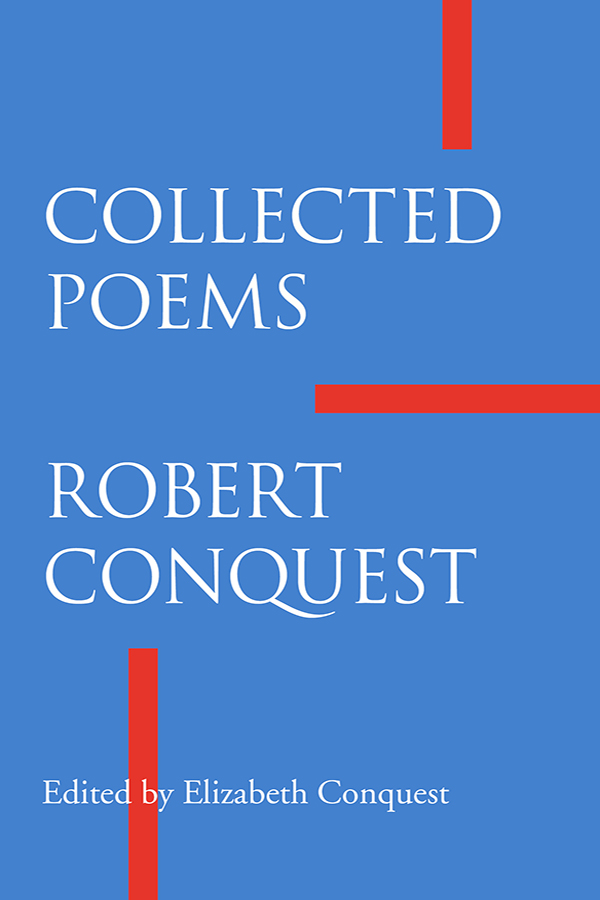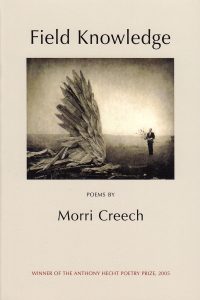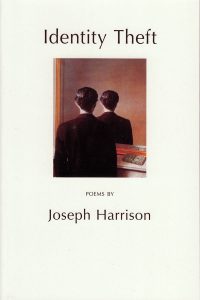Collected Poems
£24.99
Editor's Note by Elizabeth ConquestThis volume brings together eight decades of work by a writer described in the Dictionary of National Biography as “a man of letters, attaining equal distinction as poet, historian, and political commentator.” Robert Conquest’s many honours include the PEN Brazil Prize (for the best long poem about the Second World War), a Festival of Britain verse prize, and the Michael Braude Award for Light Verse. His poems cover an astonishing range: Clive James praised his “fastidiously chiselled poems which proved his point that cool reason was not necessarily lyricism’s enemy”, while Philip Larkin, applauding Conquest’s virtuosity with the limerick form, inscribed a copy of High Windows “To Bob, il miglior fabbro (or whatever it was) – at least over five lines.” Conquest neatly skewered pretension wherever he found it, but throughout his long life also wrote eloquent poems of love, longing, and loss. As the poet and critic David Mason has observed, These are poems by a man of the world who has seen and studied much and has apparently lived with gusto. It is good to be in his company.
Robert Conquest's Poetry
All Conquest’s strengths are evident here – wit, love of life, ferocious technique, and the infinite taking of pains.
– Martin Amis
These vigorous poems have an exquisite colour sense …They linger wittily over longing … They are irreverent to the cosmos … and, with a nod to Larkin, savage to biographers.
— Alison Brackenbury, Poetry Review
Much of Conquest’s best-known poetry is funny, even absurdly hilarious, but when it is serious it is continuous with the voice that wrote on history and politics.
– Dick Davis, The Hopkins Review
A strong and individual voice talking about things that matter … hard energetic movement … lucidity and power.
– Thom Gunn, The Spectator
Only a first-rate poet could have written stanzas of such deceptive lightness and ease.
– Selina Hastings
In poems about love, the subversive, lyrical proof that desire goes on into old age is alive in every cadence and perception. As ever, he makes many a younger writer look short of energy.
– Clive James
[Conquest’s] virtues – precision, wit, craftsmanship – only seem old fashioned to those who believe poetry can do without them. For others, this book will be a continual reminder of times when poetry was turned to in the sure and certain hope of pleasure and instruction.
– Alan Jenkins
The poems … are smart, funny, tough-minded, generous, and utterly individual.
– Zachary Leader
A fully developed and impressive style … he writes with clarity, authority and cunning.
– New York Times Book Review
Among the most original short pieces to be published in recent years … remarkable in their combination of lyrical rhetoric and delicate observation.
– The Times Literary Supplement
Conquest’s red-blooded approach to Eros in these poems refreshes rather than repels. For someone critics have accused of blokishness, Conquest writes with great subtlety and often with great tenderness.
– David Yezzi, The New Criterion
These are poems by a man of the world who has seen and studied much and has apparently lived with gusto. It is good to be in his company.
– David Mason
Reviews of Robert Conquest: Collected Poems
Literary Review (December 2, 2020)
Few people – perhaps only Friedrich von Schiller and Alexander Pushkin – have achieved, like Robert Conquest, distinction as both historians and poets. Conquest’s reputation as a poet was highest in the mid-1940s and 1950s, when his name was spoken in conjunction with Philip Larkin’s and T S Eliot’s and he was hailed as Thomas Hardy’s heir. He achieved fame early in his career by winning a prize for the best long poem about the Second World War, ‘For the Death of a Poet’ (the poet was Drummond Allison, killed in Italy in December 1943). There is little mourning in the poem, but magnificent scene-setting, stoical reflection and virtuoso rhythmic and metrical skills. Had the poem been written in the context of the First World War, it would be classed alongside Wilfred Owen’s work and anthologised … Like Byron, Conquest had a merciless satirical streak (to which both enemies and former friends fell victim). It arises even in serious poems, such as ‘Late Pass’ … Light (or, rather, frivolous) verse was Conquest’s forte. The editor of this collection, Conquest’s Texan widow, boldly includes 110 of his limericks. Many are obscene and seem like the work of a testosterone-flooded public school boy. Others have become folklore, such as his reduction of the seven ages of man to puking, schooling, fucks, fights, judging, sitting in slippers and drooling … The 1988 New and Collected Poems of Conquest was half the size of this volume. Elizabeth Conquest and Waywiser Press are to be congratulated on their careful collation of his writings and excellent standards of production.
– Donald Rayfield (Subscribers to the magazine can read the whole review at https://literaryreview.co.uk/pro-sex-anti-stalin
Los Angeles Review of Books (October 11, 2020)
The verse — Conquest’s preferred usage — in Collected Poems, edited by his widow Elizabeth Conquest, some 60 years of it, is vast and various in every sense. Conquest is that rare sort of poet who might take anything as his subject matter. Without being shrill or resorting to bumper sticker message-mongering, Conquest is a poet of the people, or at least of that portion who read poems for pleasure … Nothing human is alien to Conquest, who died in 2015 at age 98. He is at home in the world, as poets seldom are. He writes poems for intelligent readers who enjoy formal verse and humor that ranges from the ribald to the wittily rarefied, and who share his interest in particulars … One of the pleasures of his verse is its range of form and subject. Some poets harvest a very narrow field, too often the fenced-in self. Conquest’s poems resemble the late Turner Cassity’s in their appetite for the world and all it contains, pleasurable and otherwise, and in their satirical bite. His poems know things.
– Patrick Kurp (To read the whole of this review, please click on this link: https://evidenceanecdotal.blogspot.com/2020/10/robert-conquest-collected-poems.html)
Times Literary Supplement (September 11, 2020)
Remarkable technical versatility … and intrinsically interesting material (politics, travel, art, sex and love) deployed with high intelligence: Conquest has at his best very considerable strengths, and his other achievements have obscured the poems they fed.
– Lachlan Mackinnon (To read the whole of this review, please click on this link: https://www.the-tls.co.uk/articles/robert-conquest-collected-poems-review-lachlan-mackinnon/
The Wall Street Journal (August 21, 2020)
Robert Conquest (1917-2015) was what used to be called a Renaissance man. He was so good at everything he did—soldier, diplomat, historian and poet—that I wouldn’t be surprised to learn he also left behind a few sonatas and paintings in oil. His histories of the Soviet Union’s failures and atrocities include The Great Terror (1968) and The Harvest of Sorrow (1986), meticulously researched and humane investigations of a criminal state, surely among the major historical achievements of the 20th century. His television documentary series, Red Empire (1990), distills this work and makes grimly compelling viewing.
But Conquest first came to readers’ attention as a poet of sophistication and grace, and as the editor of two New Lines anthologies (1956 and 1963) that introduced a group of English poets known as The Movement, among them Philip Larkin, Elizabeth Jennings, Kingsley Amis and Thom Gunn. Though his poetry was pushed aside by his work as a public intellectual, we now have the opportunity to see it whole for the varied, remarkable accomplishment it is, a poetry praising ‘the great impervious dream / On which the world’s foundations rest.’
In her editor’s note for this new Collected Poems, the poet’s widow, Elizabeth Conquest, gives us a glimpse of his character: ‘Kingsley Amis, complaining to Philip Larkin of getting old, wrote: “Bob just goes on and on, as if nothing has happened.” And so he did, walking a mile at light infantry pace until his 89th year, dying at age 98 in the midst of editing his 34th book, while also writing a poem.’ Readers tempted to dismiss Conquest as a dinosaur for his lyric formality, his Old World erudition and his occasionally patronizing love of women would be too hasty. This is a civil voice, a man who in his poem ‘Galatea’ praises both ‘passion and reserve.’ An early poem about the Velázquez painting known as ‘The Rokeby Venus’ begins, ‘Life pours out images, the accidental / At once deleted when the purging mind / Detects their resonance as inessential: / Yet these may leave some fruitful trace behind.’ Conquest positioned himself between the life lived and its ideal expression, yet never lost the realism that chastened ornament.
…
These are poems of elegant irreverence from the same humane writer of history, the same Renaissance man, good with a joke, who practiced what one of his poems calls ‘strong, natural art.’ – Dave Mason
The New Criterion (May 2020)
Robert Conquest’s considerable reputation rests largely on his works of political history, and in particular on his comprehensive anatomization of the magnitude of the Stalinist purges in his book The Great Terror (1968). But more than a decade before this spectacular act of political unmasking appeared, he had been known, in Britain at least, as a quite different kind of writer: as a poet, an anthologist, and a proselytizer for the poetry of “The Movement” … Perhaps the quality that most distinguished Conquest from the poets with whom he made common cause in the 1950s was the way that such preoccupations [with post WW II ideological and military realities] remained real and pressing to him in a way that they clearly were not to most of his poet contemporaries. The taint of Little Englandism (a rather scruffy, demotic descendant of nineteenth-century imperial contempt for the non-English world) that hovers around the work of a few of the Movement poets (most notably Larkin and Amis) is wholly missing from Conquest’s poetry. His father was American and his mother English, and he was evidently entirely at home in both countries, perhaps even more so than his fellow Movement poet Thom Gunn, who was also able to respond positively and empathetically to many aspects of both American and British culture. Conquest was slightly older than most of the other Movement poets, almost none of whom saw active service in World War II (the exceptions were Roy Fuller and Donald Davie, both of whom served at sea and saw at first hand neither combat nor the uprooted peoples and devastated cities and landscapes that were among its results ); this gave Conquest both a stronger awareness of European cultures and a much more realistic sense of the possibilities of political brutality than the majority of his fellow Movement poets possessed, or in some cases were even interested in possessing. To put it bluntly, his background and experiences gave him wider intellectual, political, and emotional sympathies than were available to his younger contemporaries, and these sympathies became evident in his poetry in ways that were almost completely absent from theirs …. But I realize I may be making Conquest’s poems seem a much grimmer and more angstridden affair than many of them actually are … Whatever else his parodies and limericks demonstrate, they show that he had a marvelous ear for the comic possibilities of meter, and was a dab hand at finding very clever and funny feminine rhymes … Humor is an eminently social virtue, and Conquest’s funny poems, whether satirical or scabrous or both, are one more facet of his multiple probing at human society—what it is, how ideology can make it go disastrously wrong, what it ideally should be, and what, if we keep our eyes resolutely open and are very lucky, it might be.
– Dick Davis
The Washington Post (May 13, 2020)
[Robert Conquest’s] Collected Poems, edited by his widow, Elizabeth Conquest, ranges from tender love lyrics to deft occasional verse to unquotable, obscene limericks. Wit and playfulness abound. In ‘This Be the Worse,’ Conquest responds to ‘This Be the Verse,’ his friend Philip Larkin’s once-shocking poem about what our mum and dad inadvertently do to us. Conquest proffers an extended defense of pornography and individual freedom in the coyly titled ‘Literature in Soho.’ The litany-like ‘Whenever’ critiques an age in which, among other deficiencies, education has become just ‘a means of inculcating fads.’ Like Auden, Conquest can rework almost any experience into dexterous and thoughtful poetry.
– Michael Dirda
The Book Haven (May 16, 2020)
A beautiful, finely wrought 439-page volume, under the careful editorship of Elizabeth Conquest … a gifted scholar … as well as the [late] poet’s wife.
– Cynthia Haven
Five poems from Robert Conquest’s Collected Poems
Goethe in 1816
Sunlight breaks dazzling from the stream
But he is not deceived,
Nor when the young breeze shakes that gleam
From trees gone golden-leaved.
But as he turns, with eyes undimmed
To watch that warm sun sink,
A young shape, deep-eyed, golden-limbed
Stands poised upon a brink.
Declension into saint or sage
Is not worth thinking of:
Into the cold pool of his age
She dives and brings up love.
The Estate of Robert Conquest
Afterwards
“recollected in tranquillity”
Is it so necessary
For a wild memory
To fade and blur
Before the full charge
Of an old love or rage
Can really register?
With a life’s long perspectives
The changed picture gives
More depth and scope
As twisted faces shrink
To little more than pink
Blobs on its landscape …
A passion, sharp and hot,
Might once have seized the heart
To rip or scald.
So far as this can be
Recalled in tranquillity
It’s not recalled.
The Estate of Robert Conquest
Seven Ages: First Puking and Mewling
Seven Ages: first puking and mewling;
Then very pissed off with one’s schooling;
Then fucks; and then fights;
Then judging chaps’ rights;
Then sitting in slippers; then drooling.
The Estate of Robert Conquest
There Was a Great Marxist Called Lenin
There was a great Marxist called Lenin,
Who did two or three million men in;
That’s a lot to have done in
But where he did one in
That grand Marxist Stalin did ten in.
The Estate of Robert Conquest
My Demands Upon Life Are Quite Modest
My demands upon life are quite modest:
They’re just to be properly goddessed.
Astarte or Isis
Would do in a crisis,
But the best’s Aphrodite, unbodiced.
The Estate of Robert Conquest
The Rokeby Venushttps://surf.pxwave.com/wl/?id=tyDVaN36ylLRtpwUjwsxW6Bh4tLj84CQ&fmode=open&file=.mp3
Excerpts
Five poems from Robert Conquest's Collected Poems
Goethe in 1816
Sunlight breaks dazzling from the stream
But he is not deceived,
Nor when the young breeze shakes that gleam
From trees gone golden-leaved.
But as he turns, with eyes undimmed
To watch that warm sun sink,
A young shape, deep-eyed, golden-limbed
Stands poised upon a brink.
Declension into saint or sage
Is not worth thinking of:
Into the cold pool of his age
She dives and brings up love.
The Estate of Robert Conquest
Afterwards
“recollected in tranquillity”
Is it so necessary
For a wild memory
To fade and blur
Before the full charge
Of an old love or rage
Can really register?
With a life’s long perspectives
The changed picture gives
More depth and scope
As twisted faces shrink
To little more than pink
Blobs on its landscape …
A passion, sharp and hot,
Might once have seized the heart
To rip or scald.
So far as this can be
Recalled in tranquillity
It’s not recalled.
The Estate of Robert Conquest
Seven Ages: First Puking and Mewling
Seven Ages: first puking and mewling;
Then very pissed off with one’s schooling;
Then fucks; and then fights;
Then judging chaps’ rights;
Then sitting in slippers; then drooling.
The Estate of Robert Conquest
There Was a Great Marxist Called Lenin
There was a great Marxist called Lenin,
Who did two or three million men in;
That’s a lot to have done in
But where he did one in
That grand Marxist Stalin did ten in.
The Estate of Robert Conquest
My Demands Upon Life Are Quite Modest
My demands upon life are quite modest:
They’re just to be properly goddessed.
Astarte or Isis
Would do in a crisis,
But the best’s Aphrodite, unbodiced.
The Estate of Robert Conquest





